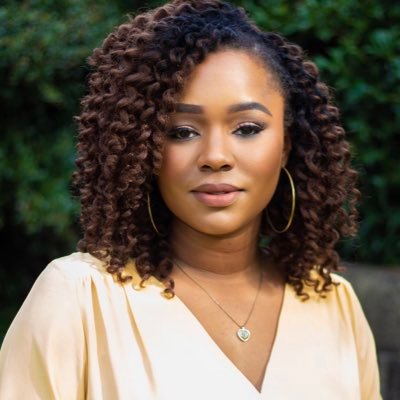
Kathryn Finney has made it her mission to ensure that talented Black and Latina tech founders stake their claim in the industry. Her organization, DigitalUndivided (DID), now in its fourth year, recently announced the opening of its new innovative accelerator program during the South by Southwest conference in Austin, Texas.
Slated to open this summer, the Big Innovation Center will be housed in a 6,000-square-foot space in the heart of downtown Atlanta, close to the Spelman, Morehouse and Clark Atlanta University campuses. Hoping to reach more than 2,000 Black and Latina female founders, the accelerator will offer a four-month program that trains high-growth founders in startup methodologies.
Participants will also have access to more than 100 powerhouse mentors, office space for up to a year, and access to the program’s newly launched Harriet Fund, led by investment expert Gayle Jennings O’Byrne, formerly of JPMorgan Chase.
We caught up with Finney at SXSW to learn more about how her and her team are fundamentally changing the discussion about tech and diversity, and creating innovative opportunities for women of color.
TriplePundit: Why was it important for you to announce the launch of the new Big Accelerator to fund Black and Latina founders here at SXSW?
Kathryn Finney: We launched here because we have a large cross-section of different communities coming together. We have a unique mass of the Black and Latino communities, local government, the tech community, and the mayor of Atlanta who attended our launch event to represent the city of Atlanta’s support of what we’re doing. [South by Southwest] is one of the few places where all of the communities are en mass at the same time.
3p: What was the decision-making behind housing the Big Accelerator in Atlanta?
KF: If you’re looking for a large portion of black and brown talent, there is no other place in the country. In particular, Atlanta’s city government is very visionary and really invested in making sure women and people of color are promoted and part of the economic ecosystem. A significant portion of dollars are spent on women and women of color in the city. Before coming to Atlanta, we surveyed a number of different cities to house the Big Accelerator. But Atlanta jumped out, engaged us, and really wanted us to build our model there.
The city government and business community reached out to us directly and said: “We want you and we’ll support you.” It’s something we never had before and became a huge incentive for us to choose Atlanta.
3p: Tell us more about the Harriet Fund and what type of investment you’re looking to make in founders of color.
KF: There are two parts to the fund: the venture fund and the angel syndicate. The angel syndicate is live right now. In fact, I have some of my own money invested in some of the companies that come through the program. I highlight that because I’m personally writing checks from my own bank account to invest in companies. We have other investors from companies like Wordpress who have also come on board. This is early-stage money that will go into companies that are part of the accelerator program. The exact dollar amount invested into each company will vary.
The Harriet Fund will invest in later-stage companies once founders’ have proven their models.
One of the challenges in black and brown communities, and why venture funding has been lacking, is that our companies have not been positioned in a way to attract venture funding. One of the challenges I see is that founders often think too small. For example, someone making $2 million per year in their business identifies themselves as being successful. However, for an investor, $2 million isn’t attractive. We’re looking for bigger returns.
Venture funding is also much more established and institutional, making it difficult to get seed funding. My role in the fund is to be a champion of the entrepreneurs. I’m super excited for all of the things that we’re doing, and I think that by being bold and being out there and putting our own money and reputations on the line, we’re giving others permission to do the same.
3p: What’s interesting about your work is that you haven’t lost your zest behind the ingenuity of the programs you’ve created. You launched DID in 2012, your Focus 100 Fellowship shortly thereafter, and now the Big Accelerator. How do you continue to stay committed to your goals and the founders you’re looking to support?
KF: One of the things we’re really good at doing is finding talent. We have an amazing team running the accelerator. I think it's important to build an excellent team who share the same vision. We’re coming from the position that our work will bring something valuable to the community, and a perspective that doesn’t currently exist.
Personally, I understand what it means to be an entrepreneur in this (often lonely) space. But, like many of the founders that will enter our program, this work is something that I have to do. There is no other option.
Images courtesy of Kathryn Finney/DigitalUndivided

Sherrell Dorsey is a social impact storyteller, social entrepreneur and advocate for environmental, social and economic equity in underserved communities. Sherrell speaks and writes frequently on the topics of sustainability, technology, and digital inclusion.














